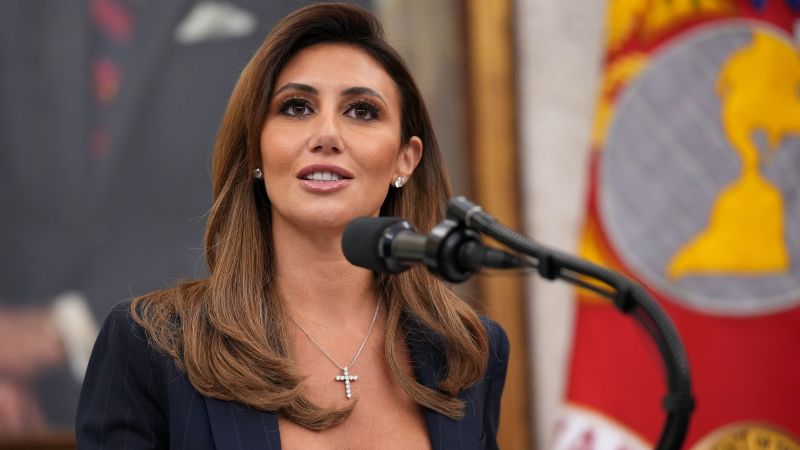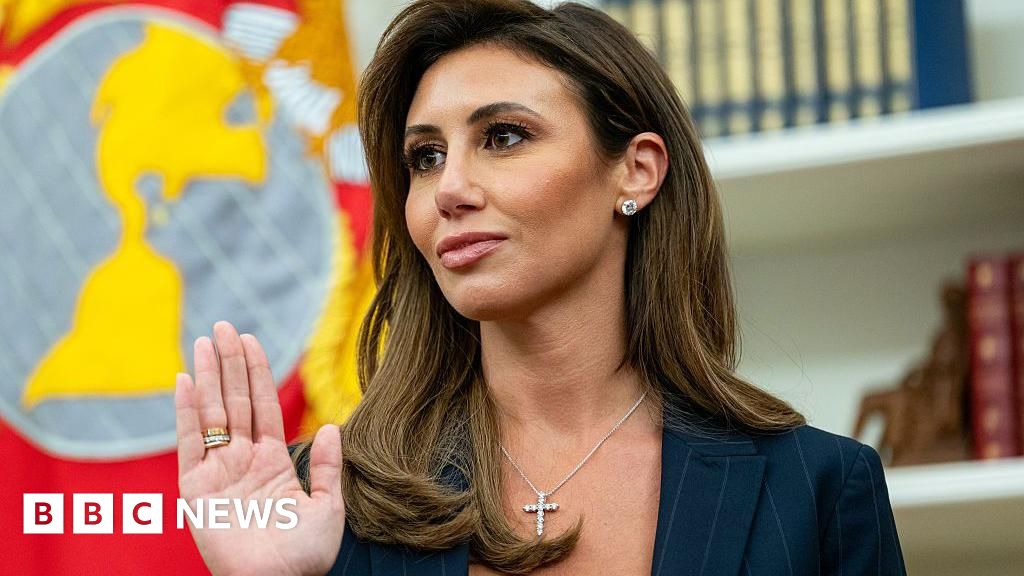Controversial Confirmation: Jeanine Pirro Becomes US Attorney for Washington, DC
#jeanine_pirro #us_attorney #washington_dc #controversy #confirmation

Introduction
In a controversial move, former Fox News host Jeanine Pirro has been confirmed as the US attorney for Washington, DC. With a narrow 50-45 vote, the Senate approved Pirro’s nomination, making her the top prosecutor in the nation’s capital. This confirmation comes after months of debate and speculation about Pirro’s qualifications for the position.
Key Details
Pirro’s background as a former judge and prosecutor in New York, as well as her experience as a television host, have been the subject of much scrutiny. While some have praised her for her legal expertise and tough stance on crime, others have expressed concern about her controversial statements on race and religion. However, Pirro has promised to be fair and impartial in her new role, stating that her past experiences have prepared her for the challenges of being a US attorney.
Impact
Pirro’s confirmation has sparked both support and criticism from the public and political figures. Some view her as a strong and capable leader who will bring much-needed change to the DC legal system, while others argue that her polarizing views may hinder her ability to effectively uphold justice. Only time will tell if Pirro’s tenure as the top prosecutor will be successful and beneficial for the city of Washington, DC.
About the Organizations Mentioned
Fox News
## Overview Fox News, formally known as the Fox News Channel (FNC), is a leading American cable and satellite news network, renowned for its conservative-leaning commentary and round-the-clock news coverage. Launched in 1996 under the vision of Rupert Murdoch and Roger Ailes, it quickly established itself as a major force in U.S. media, challenging established networks with a distinctive blend of news reporting and opinion programming[2]. Today, Fox News is a flagship asset of Fox Corporation, a multinational mass media company controlled by the Murdoch family[1][6]. ## What Fox News Does Fox News delivers 24-hour news coverage, combining live reporting with opinion-driven shows that emphasize conservative perspectives[2][3]. Its programming spans breaking news, political analysis, business updates, and lifestyle content, reaching audiences via television, digital platforms, audio, and streaming services such as Fox Nation[3][7]. Fox News Media also operates Fox Business Network, Fox News Digital, Fox News Audio, and Fox Weather, collectively reaching nearly 200 million people monthly[3][7]. ## History and Growth Fox News launched on October 7, 1996, with innovative visual storytelling and a focus on personality-driven shows, setting it apart from competitors[2]. Despite initial challenges gaining carriage in major markets, it rapidly grew its audience by catering to viewers seeking an alternative to mainstream, left-leaning news outlets[2]. Over the years, it has expanded its digital footprint, launching streaming platforms and dominating social media metrics—most recently logging 1.1 billion YouTube views in a single quarter, more than any other U.S. news brand[7]. ## Key Achievements Fox News has been the most-watched cable news channel for over 23 consecutive years, routinely outperforming not only CNN and MSNBC but also broadcast networks like ABC, NBC, and CBS in primetime ratings[6][8]. Its top programs—*Fox & Friends*, *The Five
Senate
The **United States Senate** includes several key committees critical to business and technology policy, notably the *Senate Committee on Small Business and Entrepreneurship* and the *Senate Committee on Commerce, Science, and Transportation*. These committees play pivotal roles in shaping legislation that impacts small businesses, innovation, technology development, and commerce nationwide. The **Senate Committee on Small Business and Entrepreneurship** advocates for small businesses by overseeing the Small Business Administration (SBA), which provides capital access, education, technical assistance, and federal contracting opportunities to small enterprises. This committee’s historical role has been to ensure the vitality of small businesses, which are essential to the American economy. Recent efforts include bipartisan reforms targeting SBA program efficiency, fraud prevention related to pandemic aid, and support for entrepreneurship in underserved communities. They also focus on programs like the Small Business Innovation Research (SBIR) and Small Business Technology Transfer (STTR), which connect federal agencies with private entrepreneurs to accelerate research and development in critical tech areas, thereby maintaining U.S. technological leadership[1][4][5][8]. The **Senate Committee on Commerce, Science, and Transportation** is one of the largest Senate committees, overseeing broad sectors including consumer protection, economic development, manufacturing, trade, science, and transportation infrastructure. It addresses emerging technologies, environmental issues like climate change, and space exploration, both government-funded and private. This committee significantly influences national business practices, product safety, competitiveness, and innovation ecosystems, affecting industries from maritime to digital technology[2][7]. Notable recent activities include Senate hearings on Big Tech antitrust and competition policies, emphasizing the need to regulate dominant technology firms to foster innovation and protect consumers and workers. This aligns with broader legislative efforts addressing artificial intelligence and technological competitiveness in 2025[6][10]. In summary, the Senate’s organizational structure and committees serve as crucial instruments in shaping U.S. business and technology landscapes. Through oversight, legislation, and reform initiatives, they support small businesses, promote innovation
World Health Organization
The World Health Organization (WHO) is a specialized agency of the United Nations, established in 1948, with a mandate to promote global health, coordinate international responses to public health threats, and set standards for health policies and interventions[2]. Headquartered in Geneva, Switzerland, WHO operates in over 150 countries, working with governments, NGOs, and other partners to advance health equity, strengthen health systems, and respond to health emergencies. ## What WHO Does WHO’s core activities include monitoring global health trends, setting international health standards, providing technical assistance to countries, and serving as a forum for scientific and policy discussions on health issues[2]. The organization publishes influential reports such as the annual **World Health Statistics**, which tracks progress toward Sustainable Development Goals (SDGs) and provides a global “health report card”[1][8]. WHO also maintains the Model List of Essential Medicines, guiding countries on which drugs are most critical for public health[7]. In addition, WHO leads global campaigns on issues ranging from infectious disease eradication to noncommunicable diseases (NCDs), maternal and child health, and health emergencies[2][6]. ## History and Key Achievements WHO’s history is marked by landmark achievements, including the eradication of smallpox, near-eradication of polio, and the development of an Ebola vaccine[2]. The organization played a pivotal role in responding to the COVID-19 pandemic, coordinating global research, vaccine distribution, and public health guidance. In May 2025, WHO member states adopted the world’s first **Pandemic Agreement**, a historic step to improve international coordination and equity in future health crises[4]. WHO also spearheads initiatives like the Triple Billion Targets (healthier lives, universal health coverage, and protection from health emergencies) and technical policy packages targeting tobacco, alcohol, salt, and trans fat reduction[1][2]. ## Current Status and Notable Aspects WHO is currently implementing its **Fou















